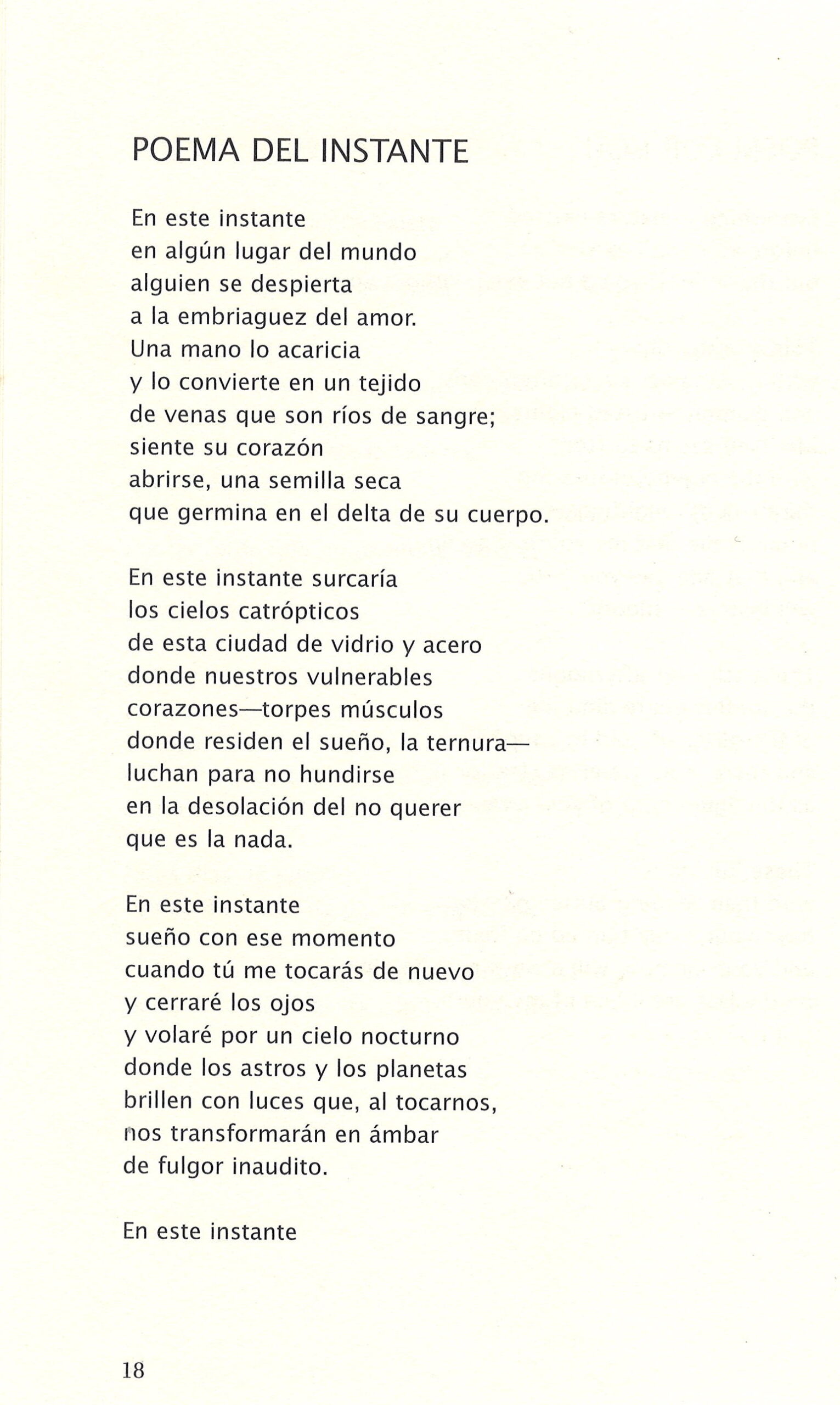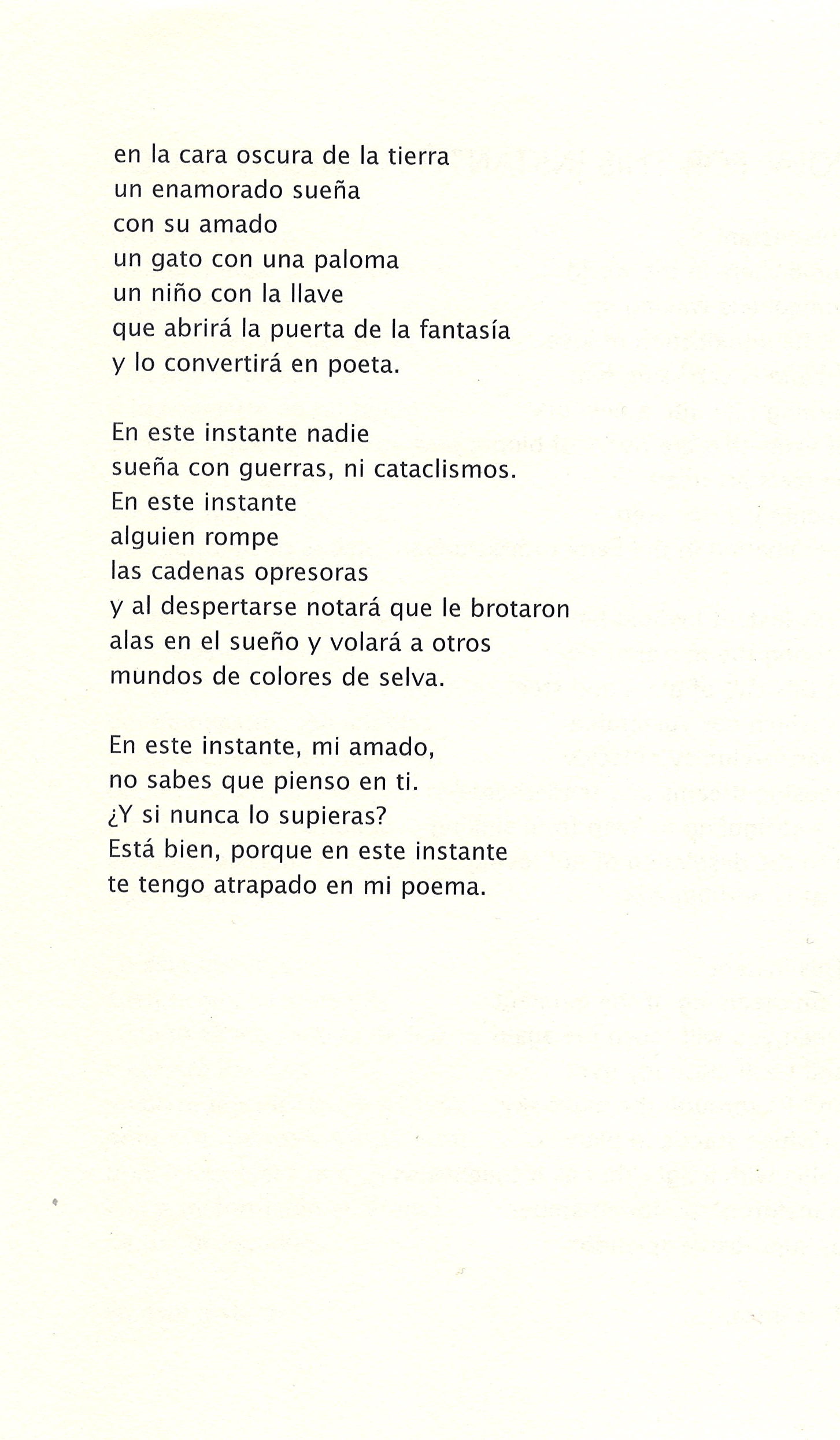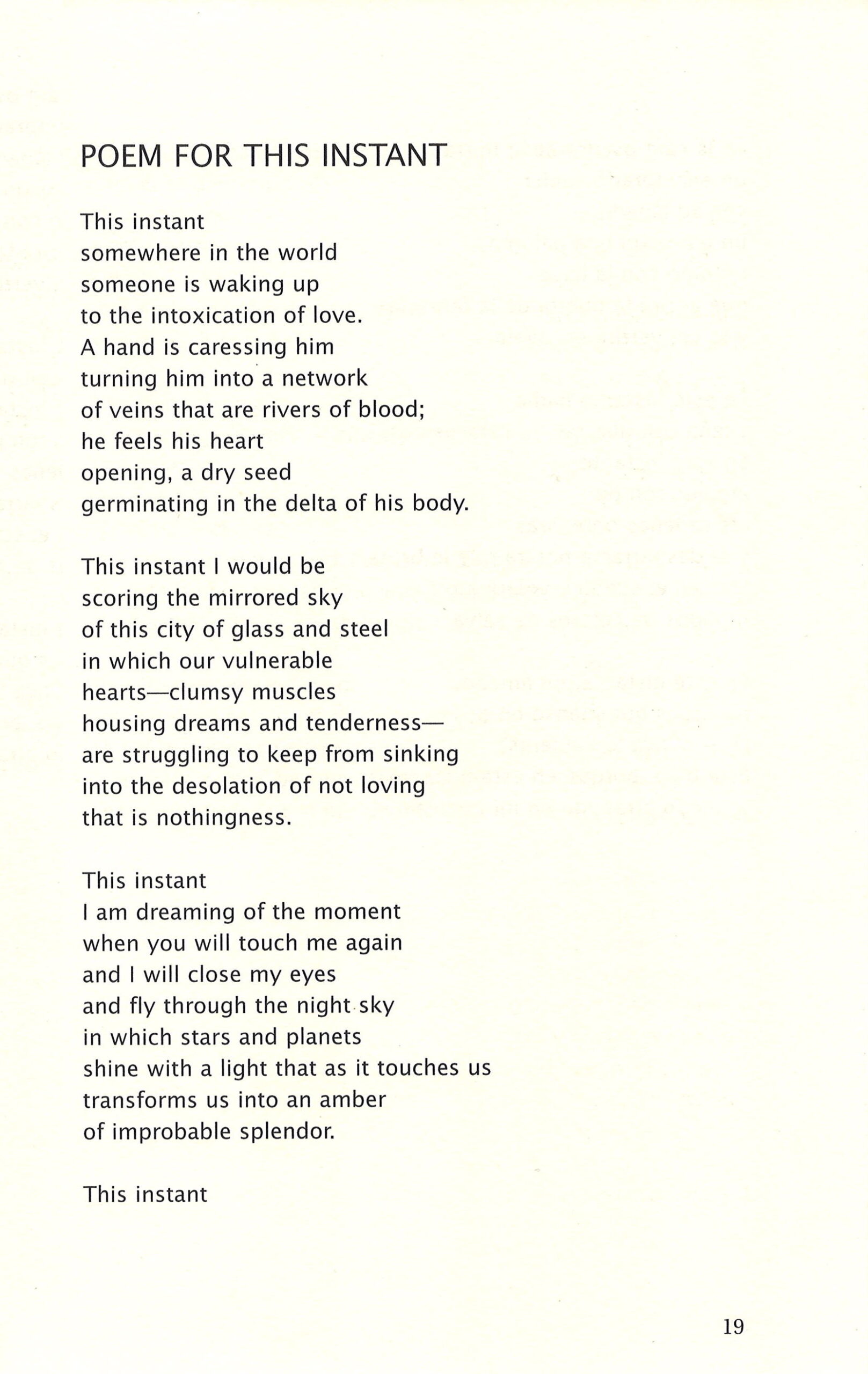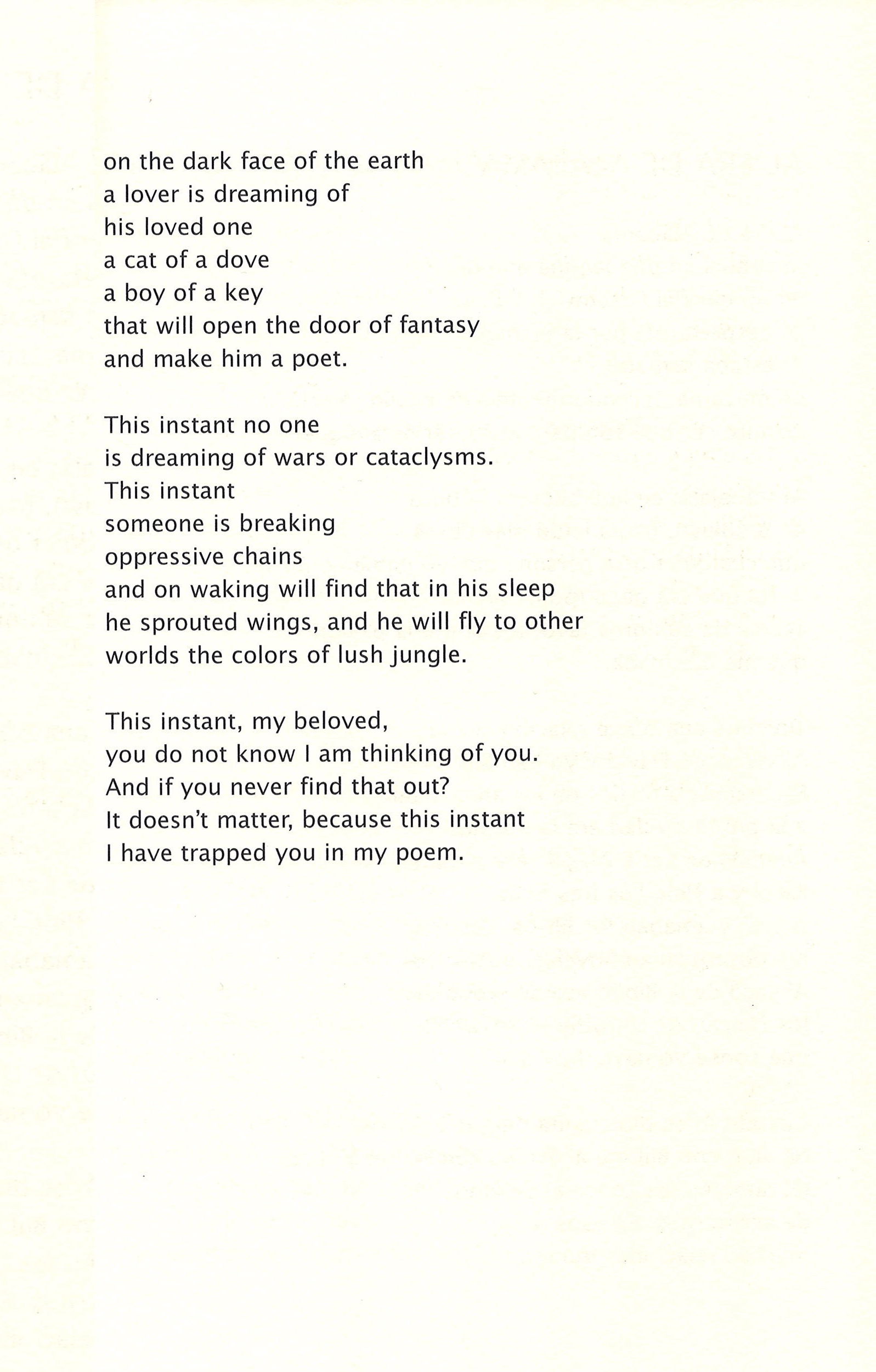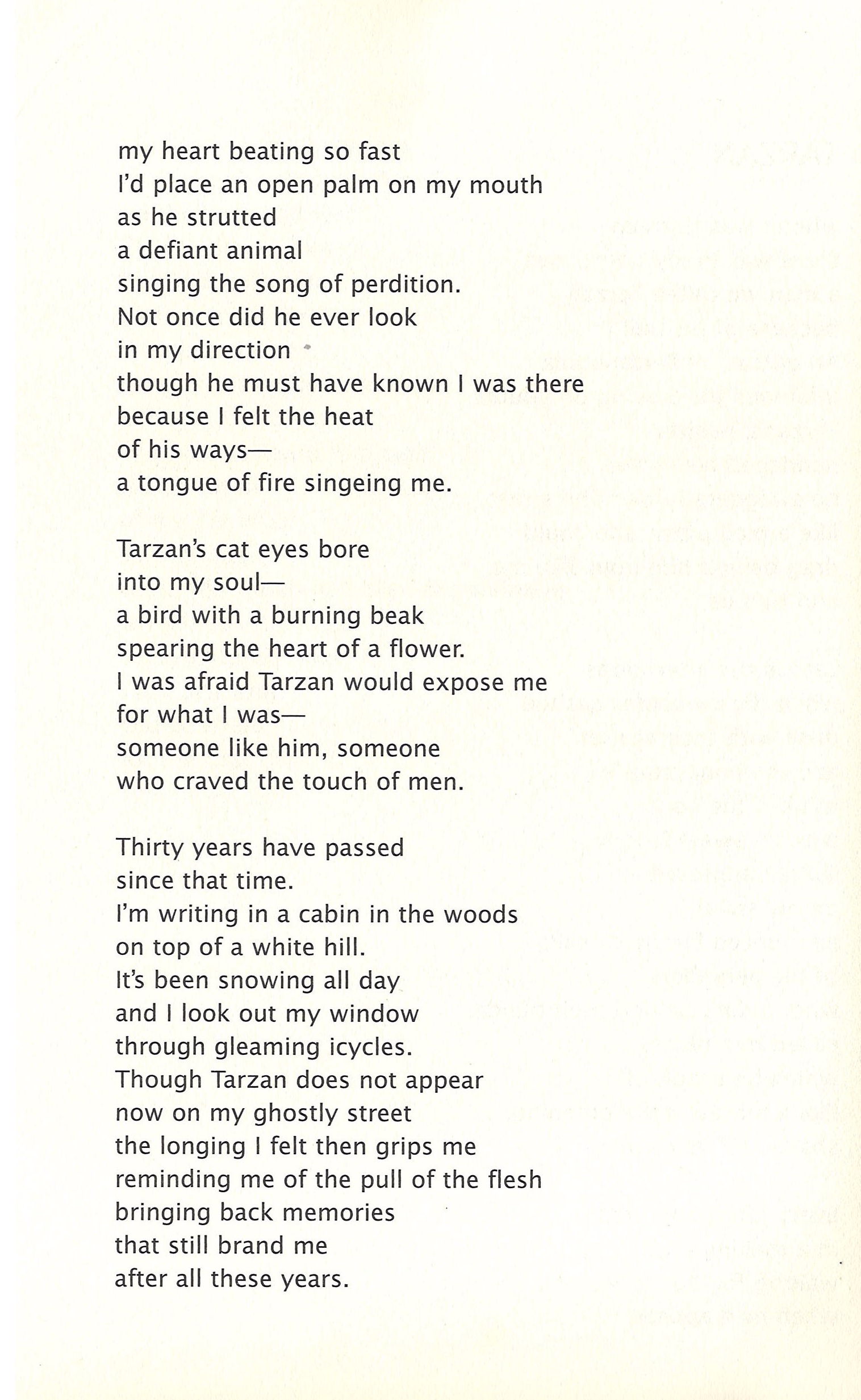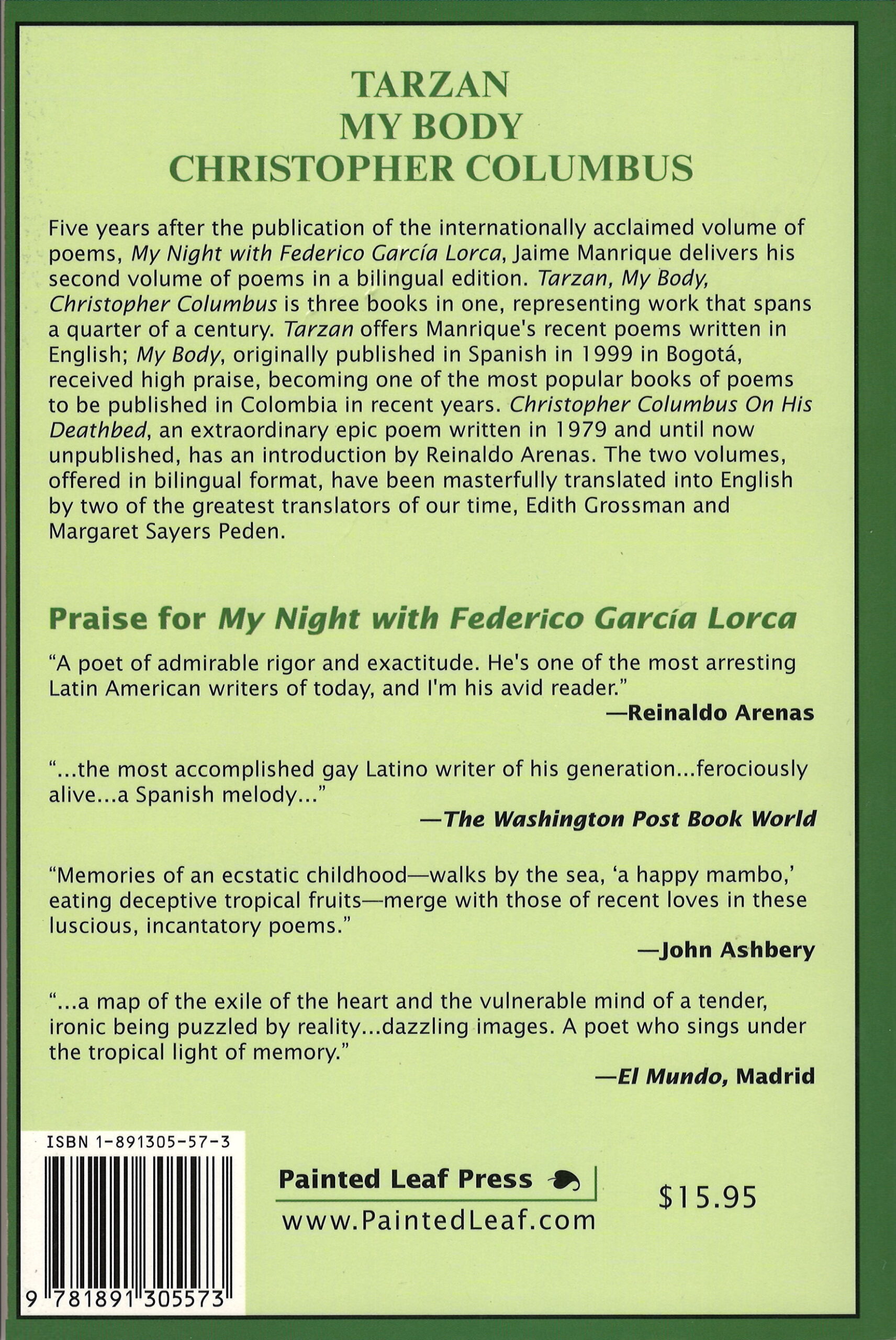I began reading Jaime Manrique’s Tarzan My Body Christopher Columbus over the summer, but because of some eye trouble, my watery itching eyes made it difficult to read. I persevered, however, because the poems valen la pena.
As the title suggests, Tarzan My Body Christopher Columbus is in three parts. The first, “Mi Cuerpo / My Body” is written in Spanish with English translations. In “Tarzan,” Manrique writes in English. The poems in both sections are autobiographical and have to do with home, growing up in Colombia, and travel that encounters both places and friends pre-AIDS, during and after.
In the third part, “Cristóbal Colón: Reflexiones en su lecho de muerte / Christopher Columbus: Reflections on his Deathbed,” the explorer remembers his voyages with happiness and regret. It is written in Spanish and translated into English.
I suspect Manrique’s translators are also his friends because they render him so well the poems remain themselves. I say “him” here instead of “poems” because I feel Manrique in his poems the way I feel some of his heroes—Lorca, Melville, Whitman, Hart Crane—whose work is sensual and present. Manrique wants to caress; his poems reach out and, if you let them, they will touch you.
“Cristóbal Colón: Reflexiones en su lecho de muerte / Christopher Columbus: Reflections on his Deathbed” is epic, hallucinogenic, surreal, yet Columbus is also real and dying. I typed out a little of the poem below in Spanish where Columbus talks about Paradise. The translation that follows is mine, and is in no way a critique of the translator’s wonderful work; it was easier to translate than transcribe. Read the book:
Ese dia escribí en mi diario:
No creo que sea una montaña elevado
La tierra se eleva gradualmente, comenzando
En regiones lejos de aquí. El Paraiso
Está situado en un lugar al cual nadie puede llegar
A menos que sea con la intervención DIVINO.
Tiene la forma del pico de una montaña,
Que se parece a la parte inferior de una pera:
Una bola coronada con una protuberancia,
Como un pezón de un pecho femenino,
La tierra se hincha a través suyo
Y se acerca al cielo. Esas son las indicaciones
De que hemos llegamos a la Vida Eterna.
……….*……….*……….*
No ha llegado al Paraíso
El Paraíso siempre estaría más allá.
Y sólo ahora, mientras muero, me siento
Cercano a sus puertas, a su umbral sin limites.
That day I wrote in my diary:
I don’t believe that it is land rising gradually, beginning
in regions far away. Paradise
is situated in a place no one can get to
unless God somehow intervenes.
It has the form of a mountain peak
shaped like the lower part of a pear
a ball with a protrusion
like the nipple on a woman’s breast
swelling out of itself
land approaching the sky. These are the indications
that we have arrived at Eternal Life.
……….*……….*……….*
No we haven’t arrived in Paradise.
Paradise will always be further off
and only now, while I die, I feel myself
close to its doors, its shadows without limits.
In the Vimeo below Jaime Manrique reads from “Mi Cuerpo.” Enjoy.
…
Tarzan My Body Christopher Columbus was published in 2001, and is a reflection of the time of AIDS. It does remain timely although it is out of print. I bought the last copy on Amazon, but maybe there are more there now. I would urge any reader to go out and find it because this is a book that still needs to be read.

